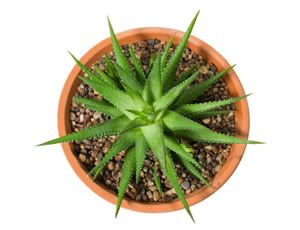 Rising gas prices have made everyone pay attention to different ways to save money on gas. One of the biggest things you can do is properly maintain your car so that it's running at its highest efficiency possible. Here are a few easy tips that you can do right now to improve your mileage:
Rising gas prices have made everyone pay attention to different ways to save money on gas. One of the biggest things you can do is properly maintain your car so that it's running at its highest efficiency possible. Here are a few easy tips that you can do right now to improve your mileage:- Constant braking and accelerating is one of the biggest gas eaters..it can reduce your highway mileage by as much as 1/3
- Properly inflated tires can be 3-5% more efficient than those that aren't inflated to the right pressure
- Heavy items in your car can soak up extra mileage. Take them out if you don't use them or need them.
- Clean air filters can increase fuel economy by as much as 10%.
For more gas effiency tips, visit fueleconomy.gov. Also, to find the cheapest gas in your area before you head out, try out GasBuddy.com


 If the organic produce in your local grocery store is a bit too pricey, look for a local farm stand. The produce is usually very reasonably priced and freshly picked--much more so than the stores.
If the organic produce in your local grocery store is a bit too pricey, look for a local farm stand. The produce is usually very reasonably priced and freshly picked--much more so than the stores.  In today's current economy-people are wondering how can I be green without spending a lot of money converting to be greener. The answer is in fact very simple. Being green does not mean changing everything you currently use day to day, everything in your house and everything around you to be more eco-friendly. It does not mean ripping out your perfectly fine wood floors and replacing them with bamboo-and throwing away the floors you ripped out, or replacing every single light bulb in your house with a compact fluorescent light bulb (CFL)-and throwing away perfectly good light bulbs. Not only are you spending money to become green, but you are also replacing perfectly good items and throwing them away to build up in a landfill somewhere.
In today's current economy-people are wondering how can I be green without spending a lot of money converting to be greener. The answer is in fact very simple. Being green does not mean changing everything you currently use day to day, everything in your house and everything around you to be more eco-friendly. It does not mean ripping out your perfectly fine wood floors and replacing them with bamboo-and throwing away the floors you ripped out, or replacing every single light bulb in your house with a compact fluorescent light bulb (CFL)-and throwing away perfectly good light bulbs. Not only are you spending money to become green, but you are also replacing perfectly good items and throwing them away to build up in a landfill somewhere. A smart green thinker is someone who, when it is time to replace a light bulb will use a CFL bulb, which can be found in almost any supermarket-even Walmart has started carrying them! These bulbs last 5-10 years, and will save you a substantial amount of money off your electric bill. Keep in mind, when using CFL bulbs, they must be disposed of at a recycling center as they do contain small traces of mercury. If you would rather recycle them through the mail, a mere $15 can get you a recycling kit for 12 bulbs (
A smart green thinker is someone who, when it is time to replace a light bulb will use a CFL bulb, which can be found in almost any supermarket-even Walmart has started carrying them! These bulbs last 5-10 years, and will save you a substantial amount of money off your electric bill. Keep in mind, when using CFL bulbs, they must be disposed of at a recycling center as they do contain small traces of mercury. If you would rather recycle them through the mail, a mere $15 can get you a recycling kit for 12 bulbs ( Recently a lot of attention has been given to indoor house plants and their ability to filter the air around us. Whether you are in an office or home environment, the postive effects from having plant life present can only lead to good things. According to
Recently a lot of attention has been given to indoor house plants and their ability to filter the air around us. Whether you are in an office or home environment, the postive effects from having plant life present can only lead to good things. According to 
